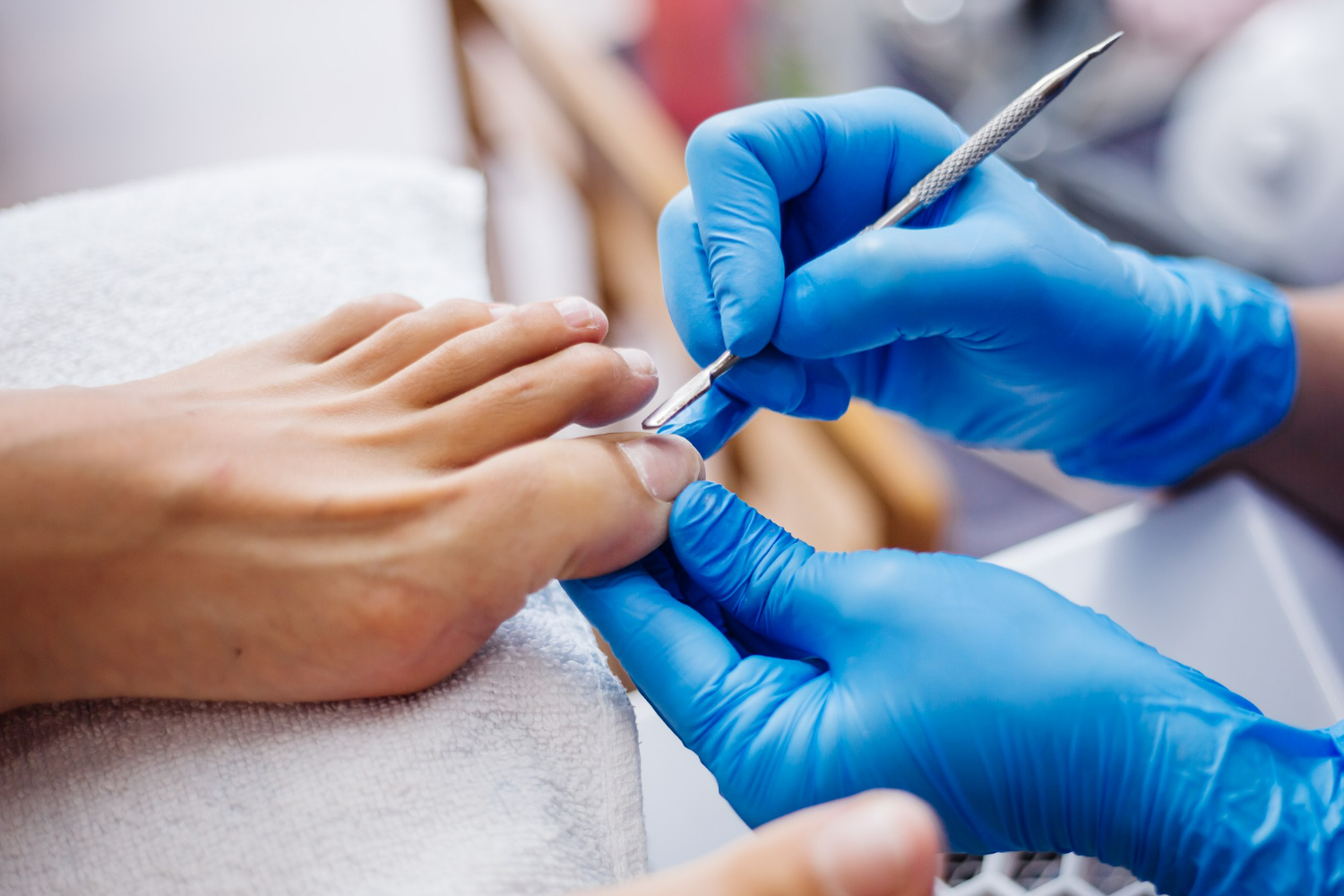

Ingrown Toenails: Causes, Symptoms, and Treatment in Manchester & the North West
If you’ve ever experienced the pain of an ingrown toenail, you know how uncomfortable and frustrating it can be. This common condition occurs when the edge of your nail starts to grow into the surrounding skin, often leading to pain, swelling, redness, and sometimes infection.
At Home Podiatry, our skilled podiatrists help patients across Manchester, Rochdale, Heywood, Bury, and throughout the North West find relief from ingrown toenails with safe and effective treatments.
What Causes Ingrown Toenails?
Ingrown toenails can develop for a number of reasons. Some of the most common causes include:
-
Tight or ill-fitting shoes that press on your toes
-
Toe injuries or repetitive trauma
-
Flat feet or abnormal foot structure
-
Inherited nail shape or growth patterns
-
Poor cutting technique, such as trimming nails too short or rounding the corners
If left untreated, a minor ingrown nail can quickly turn into a painful infection — so it’s always best to seek help early.
Signs and Symptoms to Watch Out For
You may have an ingrown toenail if you notice:
-
Pain or tenderness along the side of the nail
-
Redness and swelling around the nail edge
-
Fluid or pus discharge in more advanced cases
-
A bad odour or warmth around the area
-
Discomfort wearing shoes or walking
For people with diabetes or poor circulation, it’s especially important to get podiatric care promptly to avoid complications.
How We Treat Ingrown Toenails
At Home Podiatry, we take a gentle and professional approach to treating ingrown toenails. Depending on your symptoms, we may recommend one of the following treatments:
Conservative Treatment
For mild or early-stage ingrown nails, we can:
-
Carefully trim and reshape the nail to relieve pressure
-
Apply antiseptic dressing to reduce infection risk
-
Give advice on footwear and nail care to prevent recurrence
Surgical Treatment
If your ingrown nail keeps coming back or has become infected, we may suggest a Partial Nail Avulsion (PNA) a simple, effective procedure performed under local anaesthetic. The ingrown part of the nail is safely removed, and the root may be treated to prevent it from regrowing.
Most patients feel immediate relief after treatment and are back to normal activities within a few days.
Recovery and Prevention Tips
After treatment, we’ll guide you through proper aftercare to promote healing and prevent the nail from becoming ingrown again. Here are a few helpful tips:
-
Cut toenails straight across, not curved
-
Keep your feet clean and dry
-
Wear comfortable shoes with plenty of toe space
-
Avoid cutting nails too short or digging into the corners
Simple habits like these can go a long way toward keeping your feet healthy.
Areas We Cover for Ingrown Toenail Surgery
We provide ingrown toenail surgery in the following locations:
Ingrown Toenail Surgery in Rochdale
Ingrown Toenail Surgery in Heywood
Ingrown Toenail Surgery in Middleton
Ingrown Toenail Surgery in Oldham
Ingrown Toenail Surgery in Bury
Ingrown Toenail Surgery in Manchester
Ingrown Toenail Surgery in Todmorden
Expert Podiatry Care Across Manchester and the North West
At Home Podiatry, we proudly serve patients across Manchester, Rochdale, Heywood, Bury, and surrounding North West areas. Our team is dedicated to helping you stay pain-free with expert diagnosis, professional treatment, and personalised aftercare.
If you’re struggling with an ingrown toenail or think one might be developing don’t wait for it to worsen.
Book your appointment with Home Podiatry Manchester today and let our experienced podiatrists help you walk comfortably again.